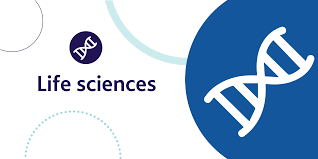
When you think of careers that make a positive impact on the world, you might think nurses, doctors, teachers, and activists. Though this is accurate, you probably aren’t thinking agrotechnology and bioinformatics – you may not even know what those are! But that’s okay, most people don’t. What might sound more familiar to you is an industry called Life Sciences. Anything from the methods used in efficient agricultural production (agrotechnology) to the analysis of genetic codes (bioinformatics) can be considered a life science. In addition to being a major economic driver in the U.S., the life sciences industry is filled with diverse career opportunities for individuals of many backgrounds.
This past semester, the BioCT produced a webinar in partnership with the UConn Center for Career Development titled “The Most Pressing Talent Needs of the Life Science Industry: Highlights from the 2018 CSBI National Workforce Trends Report” to discuss some of the noteworthy trends happening in the life sciences industry right now. BioCT is an organization dedicated to connecting different agencies in government, academia, and the workforce in an effort to promote the growth and retention of talent and companies in the state. Together with representatives from CSBI, the institution responsible for producing the 2018 report, we were able to discuss some trend highlights.
The conclusions of the report indicate a bright outlook for the industry, with projected growth for roles in everything from engineering, to manufacturing, to research & development, and lots more in between. For undergraduates who are looking to pursue full time positions upon graduating it’s worth noting that more than half of the positions in the industry are held by individuals with a bachelor’s degree.
New companies in the life science industry are constantly being established and existing ones are expanding. From 2014 to 2016 the number of companies has gone from 77K to 85K and the number of employees has risen from 1.66 to 1.74 million. But why does this all matter? As you plan for your future and decide on your career path, it’s important to know that your opportunities to conduct meaningful work are expanding.
If you are interested in technology, data analytics, 3D printing, or AI, know that life sciences is an industry that can provide the context you need to pursue your passion. Beyond these specific interests, employers in the field are looking for candidates who are flexible, willing to adapt, and that can see the big picture. So consider your interests, get involved, seek out the relevant experiences and use your resources to land in the meaningful place that we all desire to reach.
“A Day in the Life of a Laboratory Operations Professional” was part of an ongoing webinar series on careers in bioscience, produced by BioCT in partnership with the UConn Center for Career Development. Please see BioCT’s website for a recording of the full webinar. The next webinar is “A Day in the Life of a Government Affairs Professional at Boehringer Ingelheim” and scheduled for Tuesday, March 29, 2019 at 10:00 am – 11:00 am EDT: Register here.
